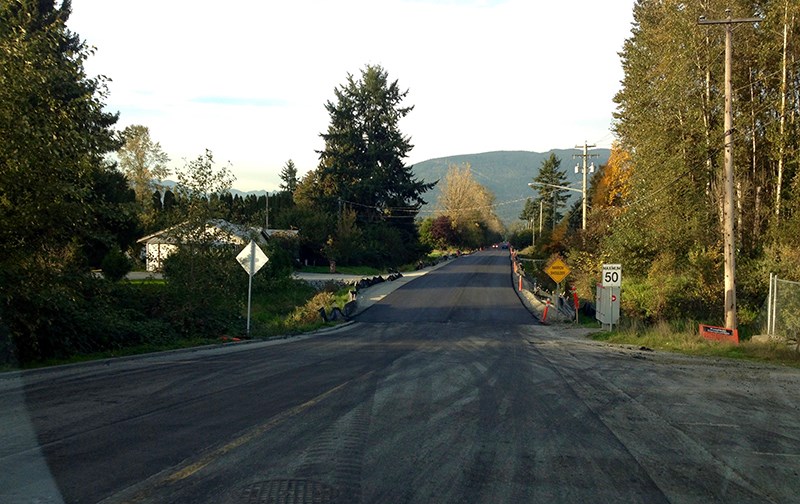Port Coquitlam’s engineering director donned bullet-proof garb this week to take the heat from city council on a public works project with a massive cost overrun.
Kirsten Meersman wore a police Kevlar Vest as she stood before Mayor Greg Moore and council to explain why the Burns Road upgrade came in $365,000 more than budgeted.
Livid councillors riddled Meersman with questions for 45 minutes, demanding answers on how the number could have skyrocketed without them knowing.
And they expressed frustration with how city managers are handling public tax dollars given its extensive efforts to tighten the purse strings.
Last December, during inaugural speeches after the civic election, councillors pledged transparency and accountability to keep property taxes low. In turn, Moore created sub-committees to find financial efficiencies as well as revenues to offset civic costs.
At Monday’s finance and intergovernmental committee meeting, councillors drew blood and called for repercussions against those responsible for running the Burns Road bills high.
At issue was the water main at the south end of Burns Road, the once-dilapidated arterial route that’s now designated to be part of the upcoming Fremont Connector to Burke Mountain.
As the culvert was being worked on this year by outside contractors, it was agreed the utility portion would be done in-house by city crews.
The city’s consultant, Web Engineering, estimated the water main project to cost $560,000 based on a comparable job on Prairie Avenue.
But the city crews were hampered by the amount of traffic, among other things.
Meersman said the water main project took six weeks longer than anticipated because the city’s transportation committee insisted Burns Road be kept open during construction.
She also pointed to the lack of oversight as being a problem. Invoices were still coming in even last week for materials purchased over the summer, she told the committee.
Meersman said she didn’t want to alert council until all the receipts had come in and it was able to assess the magnitude of the overrun.
In the end, the water main work cost $925,000 — $365,000 more than budgeted.
Typically, contractors have to “eat” the costs when they don’t meet the tendered price, Meersman said. In this case, though, since the work was done by municipal employees who were “stretched" to their limit, taxpayers are on the hook.
While she offered no apology, Meersman admitted to a “disconnect” between the city crews and managers. “There should have been checks and balances all along,” she said.
PoCo, she said, has used the consultants in the past and defended they did their due diligence. Still, the city has “never seen anything like this before” in terms of an underestimate from the firm.
“I’m at a loss of adjectives to describe how I’m feeling,” said Coun. Brad West, chair of this year’s transportation committee. “How are we to have any confidence on future projects?… It seems like nobody’s watching, nobody’s in charge.”
Coun. Dean Washington, chair of the city’s budget and infrastructure committee, said the overruns boiled his blood. “If it was any other form of government, we would have a public inquiry,” he said while challenging some of Meersman’s explanations as to the cause of the spike.
Like West, Washington called for consequences against those responsible; however, city manager John Leeburn advised council not to discuss personnel issues in a public forum. “In the private sector the heads would be rolling down the streets already,” Washington retorted.
Moore suggested city staff report to council every time a public works project goes beyond its budget by a certain percentage.
Meanwhile, besides dipping into the city’s water accumulated surplus for another $365,000, the finance committee on Monday also withdrew another $10,000 from the fund to pay for a 7.5 m setback for a new fire hydrant on the Mary Hill bypass.
The new retaining wall, a requirement of the provincial government, doubles the project budget to $20,000.



